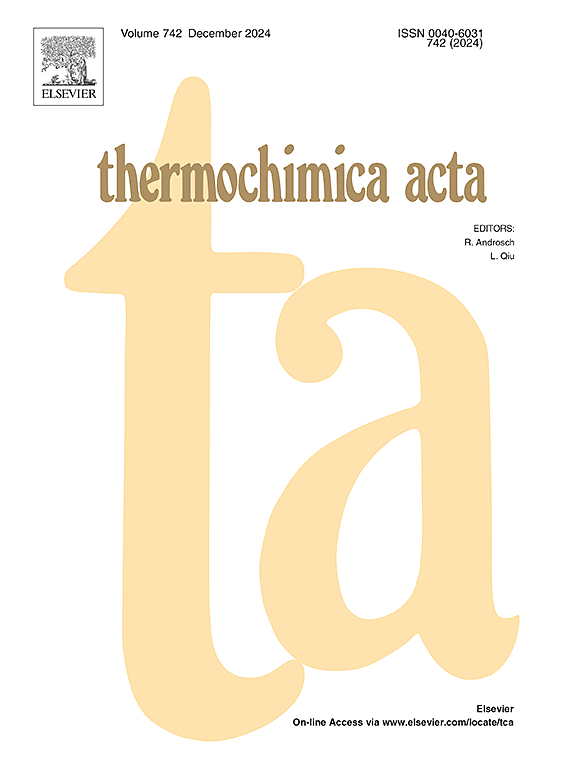Unraveling the influences of isothermal temperature, rock debris and water saturation on tight oil oxidation behavior and kinetics
IF 3.1
2区 化学
Q2 CHEMISTRY, ANALYTICAL
引用次数: 0
Abstract
It is critical and fundamental to explore main influence factors on tight oil oxidation behavior and kinetics, which has not been well understood. In this work, thermal analysis and Coats-Redfern method were employed to comprehensively investigate main influence factors. Besides, the most appropriate reaction order (n) was analyzed to obtain kinetic parameters. It suggested three reaction regions with the activation energy variation, and distillation effect was remarkable. Apart from the surface area effect, the addition of rock debris and clay also had the strong catalytic ability to decrease threshold, peak, and ending temperatures. Besides, the n variation implied a more complex, possibly multi-step reaction mechanism. Water existence could strengthen the distillation effect and lower exothermic peaks via suppressing the reaction rate. Moreover, corresponding activation energies indicated the water could promote the oxidation reaction evolution under lower temperatures. From this study, it could provide new insights into the reaction model optimization and numerical simulation for the air injection process.
揭示了等温温度、岩屑和含水饱和度对致密油氧化行为和动力学的影响
探索致密油氧化行为和动力学的主要影响因素是至关重要和基础的,但目前还没有很好地认识到这一点。本文采用热分析和Coats-Redfern方法对主要影响因素进行了综合研究。并分析了最适宜的反应阶数(n),得到了反应动力学参数。发现了三个反应区活化能变化较大,蒸馏效果显著。除表面积效应外,岩屑和粘土的加入对降低阈值、峰值和结束温度也有较强的催化作用。此外,n的变化暗示了一个更复杂的反应机制,可能是多步反应。水的存在可以通过抑制反应速率来增强精馏效果,降低放热峰。相应的活化能表明,在较低的温度下,水可以促进氧化反应的进行。该研究为喷气过程的反应模型优化和数值模拟提供了新的思路。
本文章由计算机程序翻译,如有差异,请以英文原文为准。
求助全文
约1分钟内获得全文
求助全文
来源期刊

Thermochimica Acta
化学-分析化学
CiteScore
6.50
自引率
8.60%
发文量
210
审稿时长
40 days
期刊介绍:
Thermochimica Acta publishes original research contributions covering all aspects of thermoanalytical and calorimetric methods and their application to experimental chemistry, physics, biology and engineering. The journal aims to span the whole range from fundamental research to practical application.
The journal focuses on the research that advances physical and analytical science of thermal phenomena. Therefore, the manuscripts are expected to provide important insights into the thermal phenomena studied or to propose significant improvements of analytical or computational techniques employed in thermal studies. Manuscripts that report the results of routine thermal measurements are not suitable for publication in Thermochimica Acta.
The journal particularly welcomes papers from newly emerging areas as well as from the traditional strength areas:
- New and improved instrumentation and methods
- Thermal properties and behavior of materials
- Kinetics of thermally stimulated processes
 求助内容:
求助内容: 应助结果提醒方式:
应助结果提醒方式:


